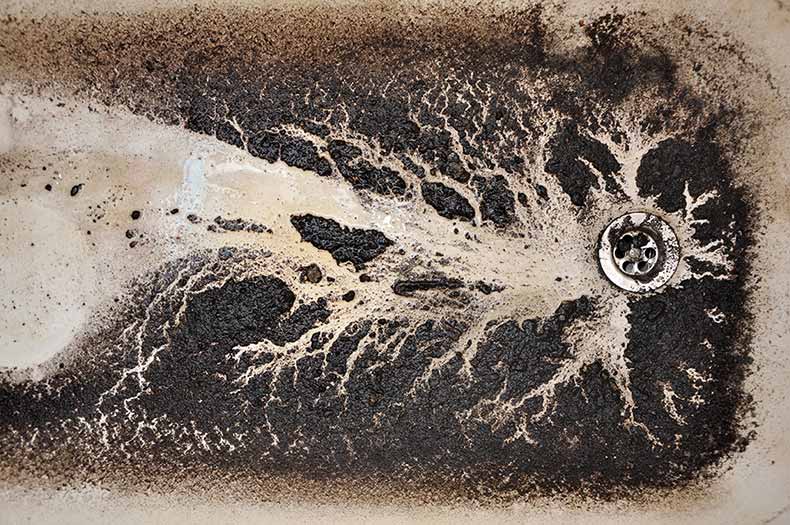Examining the Phenomenon of Waste Rising Through the Bathtub
Examining the Phenomenon of Waste Rising Through the Bathtub
Blog Article
On this page underneath you can discover a lot of dependable expertise in regards to Why sewage is coming up through your bathtub.

Sewer back-up in the bathtub can be an upsetting and unsanitary problem for any kind of property owner. Not just is it troublesome, however it also presents serious wellness dangers and shows underlying problems with the plumbing system. Understanding why sewer is turning up via the bathtub is vital for taking proper action to resolve the problem properly.
Intro to the Problem
Common Factors for Sewer Backup
Obstructions in the Drain Line
Among the most common root causes of sewer back-up is an obstruction in the drain line. This can occur due to the accumulation of particles, grease, or international objects in the pipes, protecting against correct flow and triggering sewage to back up right into your tub.
Tree Root Invasion
Tree origins seeking dampness and nutrients can infiltrate drain lines via small cracks or joints. Gradually, these roots can expand and increase, causing considerable damages to the pipes and causing sewage back-up problems.
Understanding the Trouble
When sewage draws back up into the bathtub, it's a clear indicator of a problem with the water drainage system. The wastewater that must be flowing far from your home is rather locating its back into your living space, which can result in considerable damage and health hazards.
Possible Reasons
Several factors can add to sewage back-up in the bathtub. From clogs in the sewer line to issues with the plumbing infrastructure, determining the root cause is important for discovering an option.
Aging Infrastructure
Older homes might have obsoleted plumbing systems that are a lot more at risk to rust, splits, and degeneration. As pipes age, they end up being extra susceptible to leaks and blockages, boosting the likelihood of sewage backup occurrences.
Heavy Rainfall or Flooding
Throughout durations of heavy rainfall or flooding, the drain system may come to be overloaded with excess water, causing back-ups and overflows. This can lead to sewer backing up into bath tubs and other components inside the home.
Signs of Sewage Backup
Foul Odors
Undesirable odors rising from drains or fixtures, especially in the restroom, may indicate sewer backup concerns. These smells are frequently solid and relentless, indicating an issue that requires prompt interest.
Slow Draining Fixtures
Bath tubs, sinks, and bathrooms that drain slowly or otherwise whatsoever could be experiencing sewage back-up. If numerous fixtures are influenced concurrently, it's likely that the problem stems from a typical point, such as the major sewage system line.
Gurgling Sounds
Odd gurgling or bubbling noises originating from drains pipes when water is running in other places in your home are a measure of air entraped in the plumbing system. This air buildup can result from sewer backup and should be examined immediately.
Wellness Dangers Connected With Sewer Back-up
Contamination of Water System
Sewage back-up can contaminate the water supply in your house, positioning a serious health and wellness danger to you and your family. Exposure to infected water can result in stomach concerns, skin infections, and other illnesses.
Mold and mildew Development
Moisture from sewer back-up can create excellent conditions for mold development in your house. Mold spores can exacerbate respiratory system issues and create allergic reactions in sensitive people, making prompt cleaning necessary.
Spread of Disease
Sewer has hazardous germs, infections, and parasites that can trigger a series of diseases, including liver disease, cholera, and gastroenteritis. Coming into contact with sewer or polluted surfaces puts you in danger of infection.
Tidying up After Sewage Back-up
Sanitation Procedures
Thoroughly disinfect and sanitize affected areas after sewer backup to remove damaging microorganisms and protect against mold growth. Usage suitable cleansing items and protective equipment to make sure risk-free and efficient clean-up.
Remediation of Impacted Locations
Fix any damages to flooring, wall surfaces, or fixtures brought on by sewage back-up. Depending upon the degree of the damage, you may require to replace carpets, drywall, or other products to recover your home to its pre-loss condition.
Immediate Actions to Take
Switching Off Supply Of Water
In case of sewer backup, it's necessary to switch off the water supply to prevent additional contamination and damages. Situate the major water shutoff valve in your house and closed it off till the issue can be fixed.
Calling a Specialist Plumber
Taking care of sewer backup is not a DIY task. Contact a qualified plumber with experience in handling sewage-related issues to assess the scenario and carry out required repair work or clean-ups.
Avoiding Contact with Infected Water
Up until the sewage backup is fixed, avoid contact with polluted water to prevent the spread of germs and pathogens. Use protective equipment if you must be in the damaged area and clean your hands extensively afterward.
Safety nets
Normal Maintenance of Sewage System Lines
Schedule routine inspections and upkeep of your sewer lines to identify and attend to possible concerns before they intensify right into major issues. This can consist of cleaning debris, evaluating for tree origin breach, and repairing any damaged pipes.
Mounting Bayou Valves
Consider mounting bayou valves in your plumbing system to stop sewage from receding right into your home during periods of heavy rainfall or flooding. These shutoffs instantly close when water starts backing up, protecting your residential or commercial property from contamination.
Proper Disposal of House Waste
Prevent purging anything apart from toilet paper and human waste down the toilet to prevent blockages and blockages in the drain line. Dispose of grease, oil, and various other household chemicals effectively to minimize the risk of plumbing problems.
Why is There Sewage Coming Up Through the Bathtub
Sewage in your bathtub is a major problem that can make you want to abandon the bathroom for good. You don’t have to. However, it is important to identify the source of the issue and take the necessary steps to resolve it in order to avoid any health risks and property damage. In this article, we will discuss what could be causing sewage to back up through your bathtub so you can take action quickly and effectively.
The Main Reason For Sewage Backup in The Bathtub
All the sinks and toilets in your home connect to different pipes that lead to the main sewer line. The sewer line then connects to the municipal sewer system. This connection works seamlessly on a daily basis, but there can sometimes be a problem with the main sewer line.
The most common cause of sewage backup is a clogged or blocked main sewer line. The main sewer line can be clogged due to the accumulation of debris, tree roots or grease buildup, or other materials. Another possible cause is a collapsed pipe. When this happens, your toilets and sinks won’t be able to drain properly. This is when sewage starts backing up through the bathtub. If the problem has been occurring for some time now, it might be time to consult with a plumber as there may be more severe damage that needs fixing.
How Can You Tell if it’s Coming From Your Sewer Line?
If you’re experiencing a sewage backup in your bathtub, then you can use a few simple methods to determine if it is coming from the main sewer line. First, try to unclog the tub drain with a plunger or an auger and see if that helps. If not, then inspect all of the drains in your house and check if there is any blockage in them. If some of the other drains are not working fine, then it’s likely the problem is with your main sewer line.
Common Signs of a Clogged Main Sewer Line
If you suspect that your main sewer line is blocked, then there are a few common signs to look out for. Frequent clogs in your home are a sure sign of a clogged sewer line. You can also check for slow drainage from all the plumbing fixtures.
Slow Drains
If you notice that it takes longer for your sinks and toilets to drain, then this could be a sign of a clogged main sewer line.
Frequent Clogs
Another common sign is that your drains or toilets become clogged almost all of the time. If this happens, then it could be a sign that the main sewer line is blocked.
Water Backup
Do you notice water or sewage coming back up from any of the drains in your home? If your answer is yes, you may have a clogged main sewer line.
Sinkholes
If you’ve noticed sinkholes in your yard or overflowing sewage from the ground, you may be facing a blocked sewer line issue.
Your Shower or Sink Makes Gurgling Noises
Have you noticed gurgling noises coming from your sink or shower lately? These are typically signs of a blocked sewer line and should be checked out immediately.
How to Prevent a Main Sewer Line Clog
Once you’ve identified that your main sewer line is clogged, it’s important to take steps to prevent it from happening again. The best way to do this is to avoid putting any solid material that can clog the drain, such as grease and other debris. You should also be mindful of what you flush down your toilet. In addition, you should schedule regular maintenance for your main sewer line. This will help keep it clear and free from clogs or backups.
What Should You do if You Notice Sewage Backing up Through The Bathtub?
If you’ve noticed sewage backing up through the bathtub, then it is important to call a professional plumber immediately. A plumber can inspect the situation and determine what the cause is, such as a blocked main sewer line. They will also be able to advise you on how best to fix the issue. In some cases, a simple drain cleaning may be all that is needed.
However, if the blockage is severe, then your plumber may need to use more advanced methods to clear the blockage.
No matter what, it is important to always call a professional plumber if you experience any kind of sewage backup. They will be able to assess the situation and provide you with a solution that is best for your home.
https://baylorinc.com/blog/why-is-there-sewage-coming-up-through-the-bathtub/

As a devoted reader on What to Do if Sewage Starts Coming Up Through Your Bathtub, I thought sharing that short article was smart. Appreciated our blog entry? Please quickly share it. Help somebody else check it out. Thank you for taking the time to read it.
At This Website
Report this page